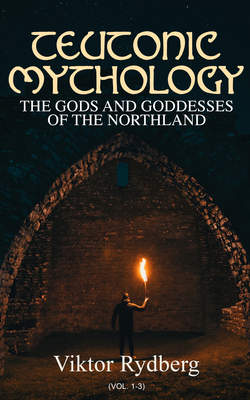Читать книгу Teutonic Mythology: The Gods and Goddesses of the Northland (Vol. 1-3) - Viktor Rydberg - Страница 7
На сайте Литреса книга снята с продажи.
1.
THE WORDS GERMAN AND GERMANIC.
ОглавлениеTable of Contents
Already at the beginning of the Christian era the name Germans was applied by the Romans and Gauls to the many clans of people whose main habitation was the extensive territory east of the Rhine, and north of the forest-clad Hercynian Mountains. That these clans constituted one race was evident to the Romans, for they all had a striking similarity in type of body; moreover, a closer acquaintance revealed that their numerous dialects were all variations of the same parent language, and finally, they resembled each other in customs, traditions, and religion. The characteristic features of the physical type of the Germans were light hair, blue eyes, light complexion, and tallness of stature as compared with the Romans.
Even the saga-men, from whom the Roman historian Tacitus gathered the facts for his Germania—an invaluable work for the history of civilisation—knew that in the so-called Svevian Sea, north of the German continent, lay another important part of Germany, inhabited by Sviones, a people divided into several clans. Their kinsmen on the continent described them as rich in weapons and fleets, and in warriors on land and sea (Tac., Germ., 44). This northern sea-girt portion of Germany is called Scandinavia—Scandeia by other writers of the Roman Empire; and there can be no doubt that this name referred to the peninsula which, as far back as historical monuments can be found, has been inhabited by the ancestors of the Swedes and the Norwegians. I therefore include in the term Germans the ancestors of both the Scandinavian and Gothic and German (tyske) peoples. Science needs a sharply-defined collective noun for all these kindred branches sprung from one and the same root, and the name by which they make their first appearance in history would doubtless long since have been selected for this purpose had not some of the German writers applied the terms German and Deutsch as synonymous. This is doubtless the reason why Danish authors have adopted the word "Goths" to describe the Germanic nation. But there is an important objection to this in the fact that the name Goths historically is claimed by a particular branch of the family—that branch, namely, to which the East and West Goths belonged, and in order to avoid ambiguity, the term should be applied solely to them. It is therefore necessary to re-adopt the old collective name, even though it is not of Germanic origin, the more so as there is a prospect that a more correct use of the words German and Germanic is about to prevail in Germany itself, for the German scholars also feel the weight of the demand which science makes on a precise and rational terminology.[1]
